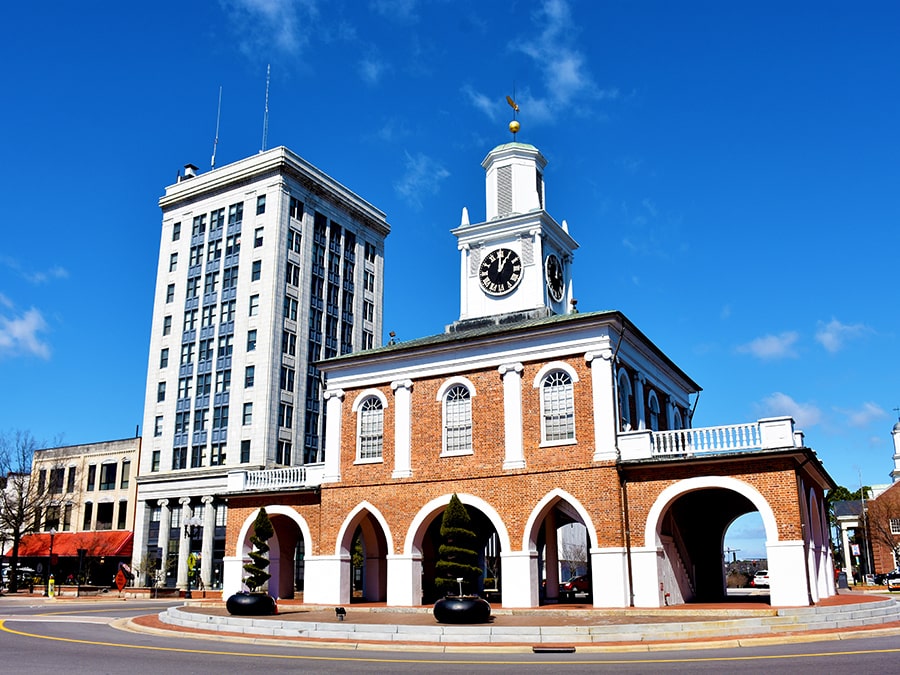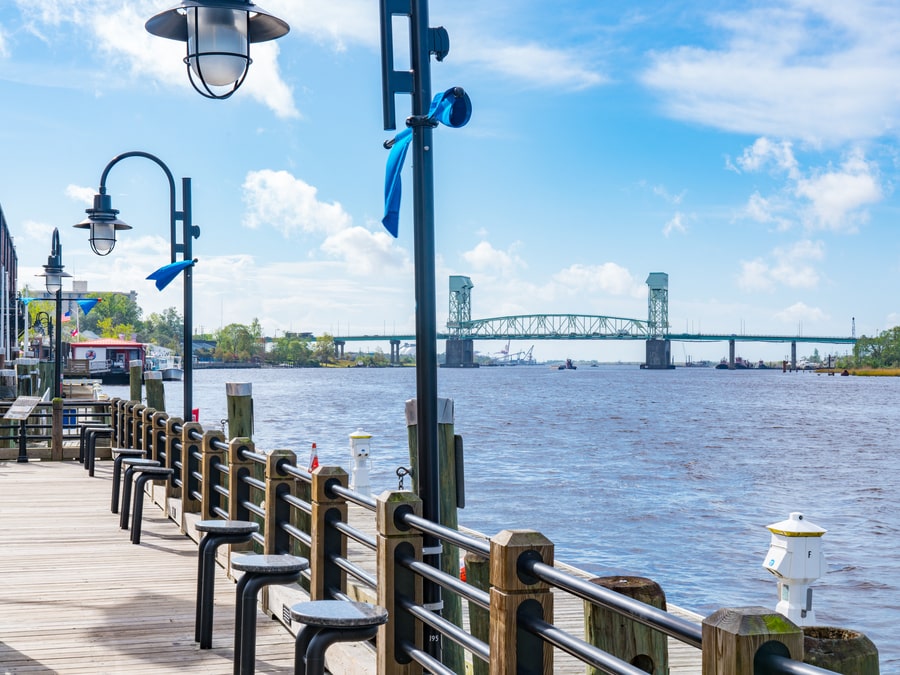Substance abuse and addiction have dramatically reshaped the American healthcare landscape, with North Carolina experiencing a particularly significant impact.
The COVID-19 pandemic’s surge in isolation and anxiety fueled a rise in substance abuse, with individuals turning to both legal and illegal substances as coping mechanisms. This crisis has been intensified by the widespread contamination of the illicit drug supply with fentanyl, making nearly every street drug a potential threat.
Top-rated drug rehabs across North Carolina offer hope and a safe path to recovery for those struggling with addiction. Discover how to access the care you need by exploring these drug rehab centers in NC.
Table Of Contents:
North Carolina Drug Use Statistics
From 2019 to 2020, drug overdose deaths increased by nearly 1,000, jumping from 2,352 to 3,304 people. In 2020 alone, nearly 15,000 emergency department visits were related to drug overdoses. An average of nine North Carolinians died each day from a drug overdose, marking a 40% increase from the previous year.
The situation only worsened in 2021, with overdose deaths increasing by another 22%. In that year, more than 77% of overdose deaths likely involved fentanyl, often mixed with other substances. By 2022, 12 people died each day from drug overdoses, culminating in more than 4,300 deaths for the year.
Regarding alcohol, the state averages one death from excessive alcohol use for every 2,345 people aged 18 and older (5.46 deaths per 10,000 adults). Notably, 69.5% of those who die from excessive alcohol use in North Carolina are male.
Top Drug Rehab Centers North Carolina
These statistics prompted the North Carolina Department of Health and Human Services to intensify its efforts, extending mobile crisis care and treatment programs to improve behavioral health services across the state. There are currently 611 active rehab facilities in NC.
North Carolina offers a wide range of rehab treatment centers dedicated to helping individuals overcome substance abuse and mental health challenges. These facilities provide comprehensive care, including inpatient and outpatient programs, medical detox, dual diagnosis treatment, and specialized services.
With a commitment to evidence-based practices and holistic well-being, discover drug rehab centers in NC below:
Best Inpatient Drug Rehab Centers
In North Carolina, there are 87 residential rehabilitation facilities focused on assisting individuals battling addiction by providing a well-structured and immersive setting.
These centers offer 24/7 care, addressing the physical, psychological, and social aspects of addiction. Typical inpatient stays range from 30 to 90 days, though some inpatient drug rehab NC may offer shorter durations. 20 of these facilities also provide inpatient drug detox services.
Outpatient Rehabs in NC
If you need more flexible and adaptable addiction treatment, North Carolina has 536 outpatient rehabilitation programs. These programs enable individuals to get the help they need while still being able to live at home and fulfill their everyday responsibilities, such as work, school, or family obligations.
The intensity of these programs varies, with 220 of them operating as intensive outpatient rehab. This type of outpatient rehab requires at least 9 hours per week for a more robust level of addiction care. Additionally, 259 of these programs can provide methadone maintenance treatment. Furthermore, you can find 97 outpatient detox centers in NC.
NC Alcohol Rehab Centers
North Carolina is home to several alcohol addiction rehabilitation centers dedicated to assisting individuals in overcoming alcohol addiction. Many of these centers combine medical treatment with psychological therapy to address both the physical dependence on alcohol and the underlying causes of addiction.
In North Carolina, 270 facilities for alcohol rehab in NC offer dual treatment for drug and alcohol addiction, while 233 offer treatment exclusively for alcohol use disorder. 104 facilities can offer detox from chronic alcohol use.
Therapy Rehab Centers in NC
Mental health issues can lead individuals to self-medicate with drugs to alleviate their symptoms.
Similarly, drug use can play a role in the development of mental health symptoms. Some substances might trigger psychosis, with effects persisting for days or weeks post-intoxication. Research shows that people suffering from substance-induced psychosis have a higher risk of evolving into a sustained psychotic disorder.
Individuals facing both mental health challenges and substance abuse disorders need to address both conditions simultaneously. 295 facilities offer comprehensive treatment for co-occurring disorders that include rehab, medication, support groups, and psychotherapy.
Private Health Insurance Rehab Centers in NC
In North Carolina, 415 drug rehabilitation centers accept private health insurance to help you afford substance use disorders.
Consider that the extent of drug rehab coverage depends on the specifics of your insurance plan and the policies of the rehab facility. It’s crucial to consult both your insurance provider and the rehabilitation center to fully grasp the scope of covered services, degree of coverage, potential expenses out of pocket, and whether any prior authorizations are needed.
Medicaid/Medicare for NC Rehab Centers
Medicaid and Medicare are essential in offering access to addiction treatment for those who qualify.
These government-sponsored health insurance plans assist in offsetting the expenses associated with diverse addiction treatment options providing easier access to addiction rehab. In North Carolina, 421 drug rehabilitation facilities accept Medicaid, and 312 are approved to accept Medicare.
Cost of Drug Rehab in North Carolina
North Carolina is ranked 28th among states from the least expensive to the most expensive for non-hospital residential drug rehabilitation services.
On average, a patient attending an outpatient rehab program in North Carolina will likely pay around $1,703. Individuals opting for residential rehab in the state can expect an average expense of $56,759. Consider that these prices correspond to a typical 30-day rehab program and long-term treatments (up to 90 days) will be more expensive.
16 facilities in North Carolina provide drug rehabilitation treatment at no cost to all their patients.
Drug Rehab NC Insurance Coverage
Insurance coverage for rehab can vary widely, from basic to all-encompassing, yet most insurance policies will cover some level of drug rehab services. Insurance companies typically restrict coverage to selected rehabilitation centers in their network. Coverage within these approved centers may only extend to certain rehabilitation programs and treatment durations for substance abuse.
The introduction of the Affordable Care Act (ACA), commonly called “Obamacare,” marked a significant change. It mandated substance use disorder treatment as one of the ten essential health benefits. This means health insurance policies offered through Health Insurance Exchanges or Medicaid must cover addiction treatment services.
A list of the largest private companies that provide rehab insurance coverage is provided below:
- Aetna
- Amerigroup Insurance
- Anthem
- Blue Cross Blue Shield
- Humana
- Kaiser Permanente
- Kemper Direct (former Unitrin)
- Providence Health Plan
- State Farm Medical Insurance
- United Healthcare
Best Rated Drug Rehab Facilities
The Tar Heel State is home to several of the nation’s premier drug rehabilitation facilities, located in various parts of the state. While this list does not cover all available options, it serves as a helpful starting point for those seeking assistance.
Here are the top 7 drug treatment centers in North Carolina:
-
{{ hub.label }}
{{ hub.title }}
- {{ mainTag }}
{{ hub.address }}
No results for these selections.
How to Choose the Best Rehabs Near Me?
Selecting the appropriate addiction treatment in North Carolina is vital for achieving lasting recovery. Follow this guide to navigate through the best drug rehabs in NC:
- Evaluate the severity of your addiction to choose the necessary care level (i.e., inpatient vs. outpatient).
- Therapy sessions could identify any concurrent disorders you might have, such as depression or anxiety.
- Reflect on your preference for treatment (i.e., a strict routine versus a more relaxed approach).
- Inform yourself about treatments backed by scientific research, like cognitive behavioral therapy.
- Check what aspects of addiction treatment your insurance policy covers.
- Search for highly-regarded facilities with good reviews and feedback.
- Ensure recognized agencies, such as the Joint Commission or CARF, accredit the facility.
- Seek advice from a professional addiction specialist for personalized recommendations.
- Opt for a facility that aligns with your feelings and recovery goals.
Rehab Centers North Carolina – Final Thoughts
North Carolina’s rehab centers are crucial in addressing the state’s escalating drug overdose crisis. With overdose deaths and emergency visits reaching alarming levels, these facilities offer essential services that provide both medical treatment and psychological support to those battling addiction.
They are also instrumental in navigating individuals’ legal challenges, as simple possession of any controlled substance can result in a misdemeanor charge, carrying a fine of at least $1,000 and up to one year in prison. As the state continues to grapple with the impact of substances like fentanyl, the role of these rehab centers remains more important than ever.
If you or a loved one is struggling with addiction, reach out to a local rehab center and take the first step toward recovery and a healthier future.
People Also Ask
Does NC Medicaid pay for inpatient rehab?
Yes, NC Medicaid covers inpatient rehab services, including medical detoxification, residential treatment, and other necessary medical and behavioral health services for eligible individuals.
What is a psychosocial rehabilitation service in NC?
Psychosocial rehabilitation services in NC help individuals with mental health conditions develop social skills, improve daily functioning, and integrate into the community through therapy, counseling, and support programs.
Who regulates rehabilitation facilities in North Carolina?
The North Carolina Division of Health Service Regulation (DHSR) regulates rehabilitation facilities, ensuring compliance with state health, safety, and quality of care standards.
Hope Without Commitment
Find the best treatment options. Call our free and confidential helpline
Most private insurances accepted
Find Drug Rehabilitation Centers Near You Anywhere In the US
Addiction Resource team has compiled an extensive list of the top drug rehabilitation facilities around the country. Click on the state you are interested in, and you'll get a list of the best centers in the area, along with their levels of care, working hours, and contact information. Haven't found the rehab you need? Call the toll-free helpline below for professional assistance.

- Alabama
- Alaska
- Arizona
- Arkansas
- California
- Colorado
- Connecticut
- Delaware
- Florida
- Georgia
- Hawaii
- Idaho
- Illinois
- Indiana
- Iowa
- Kansas
- Kentucky
- Louisiana
- Maine
- Maryland
- Massachusetts
- Michigan
- Minnesota
- Mississippi
- Missouri
- Montana
- Nebraska
- Nevada
- New Hampshire
- New Jersey
- New Mexico
- New York
- North Carolina
- North Dakota
- Ohio
- Oklahoma
- Oregon
- Pennsylvania
- Rhode Island
- South Carolina
- South Dakota
- Tennessee
- Texas
- Utah
- Vermont
- Virginia
- Washington
- West Virginia
- Wisconsin
- Wyoming
Page Sources
- Donnelly-DeRoven, C. (2021, December 2). A nationwide problem, worse in North Carolina. North Carolina Health News. https://www.northcarolinahealthnews.org/2021/12/02/drug-overdoses-a-nationwide-problem-worse-in-north-carolina/
- North Carolina reports 40% increase in overdose deaths in 2020 compared to 2019; NCDHHS continues fight against overdose epidemic. (2022, March 21). NCDHHS. https://www.ncdhhs.gov/news/press-releases/2022/03/21/north-carolina-reports-40-increase-overdose-deaths-2020-compared-2019-ncdhhs-continues-fight-against
- North Carolina reports 22% increase in overdose deaths. (2023, February 21). NCDHHS. https://www.ncdhhs.gov/news/press-releases/2023/02/21/north-carolina-reports-22-increase-overdose-deaths
- Ingersoll, A., Shipman, C., & Bisesi, R. (2024, April 19). 12 people a day died from drug overdoses in North Carolina, 2022 data says. WRAL.com. https://www.wral.com/story/12-people-a-day-died-from-drug-overdoses-in-north-carolina-2022-data-says/21387531/
- Alcohol Abuse Statistics [2023]: National + State Data - NCDAS. (2024, May 2). NCDAS. https://drugabusestatistics.org/alcohol-abuse-statistics/
- National Survey of Substance Abuse Treatment Services. (2021, July 14). https://www.samhsa.gov/data/data-we-collect/n-ssats-national-survey-substance-abuse-treatment-services
- Mental health and substance use - Mental health. (2024, May 7). Australian Institute of Health and Welfare. https://www.aihw.gov.au/mental-health/snapshots/mental-illness-and-substance-use
- Average Cost of Drug Rehab [2023]: by Type, State & More. (2024, May 2). NCDAS. https://drugabusestatistics.org/cost-of-rehab/
- Substance Abuse and the Affordable Care Act. The White House. https://obamawhitehouse.archives.gov/ondcp/healthcare
- Federal, state and local regulations - police. (2022, October 3). Police. https://police.unc.edu/about/drug-and-alcohol-prevention-program-report/federal-state-local/

 Authored by
Authored by  Reviewed by
Reviewed by 







